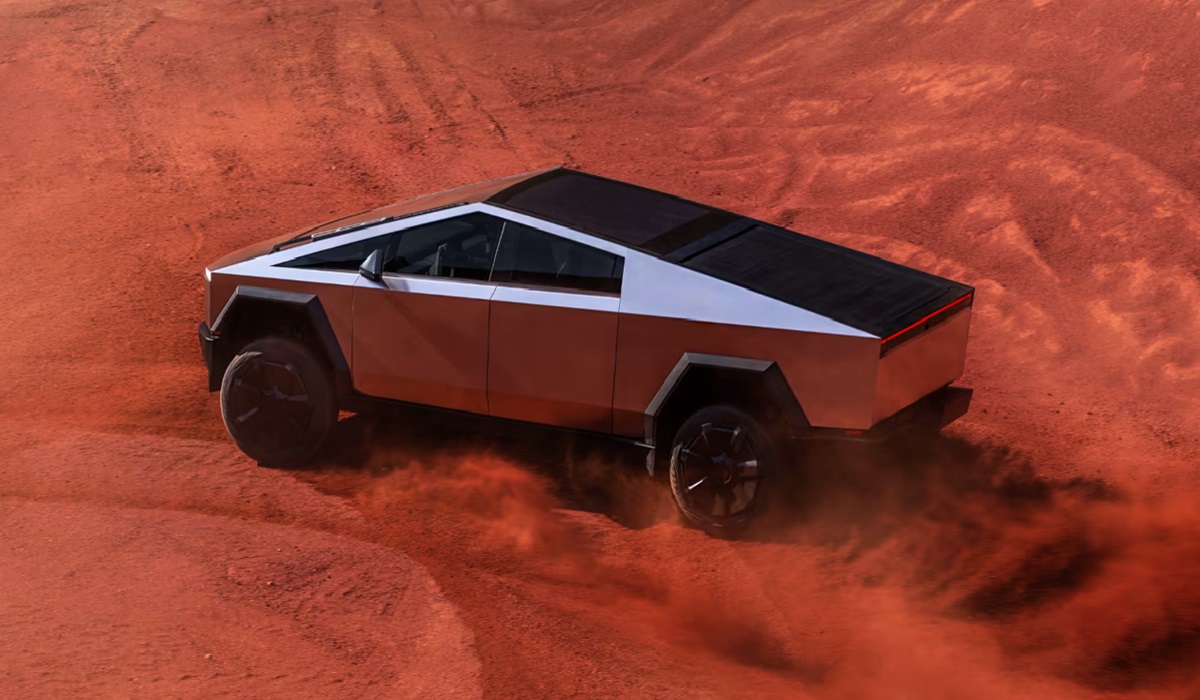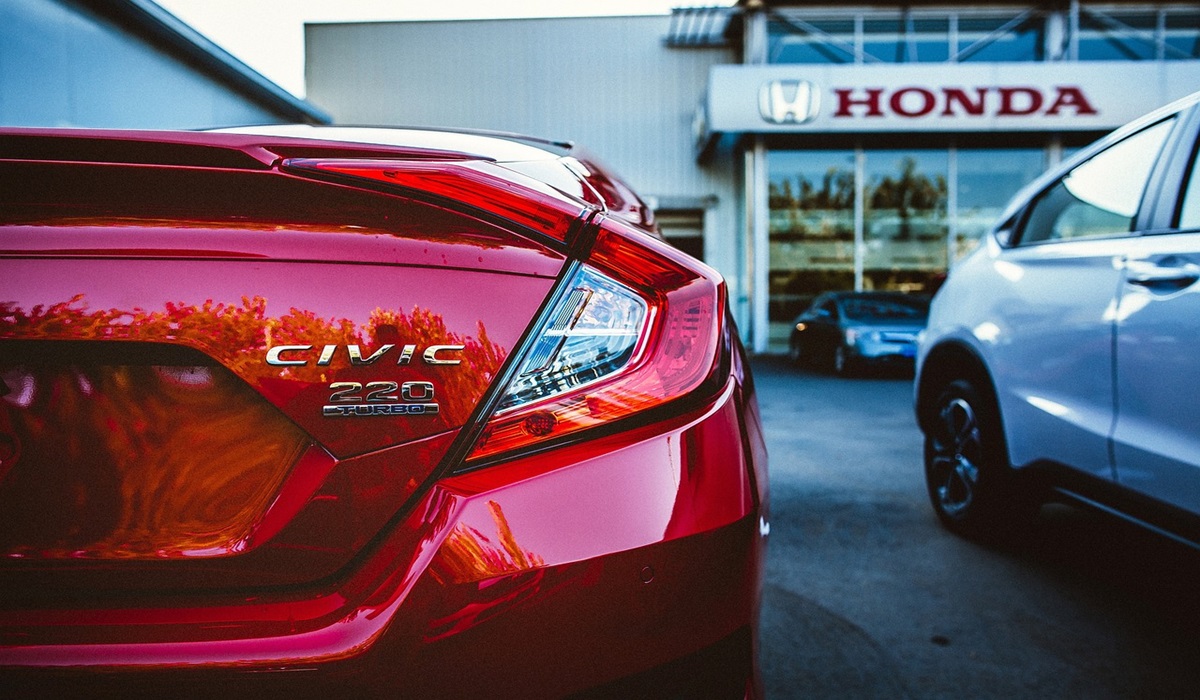Image Credit, Tesla
Tesla’s Cybertruck, the unique vehicle that continues to dominate the electric truck market, recently hitting a milestone of over 48% market share in the sector. This extraordinary achievement comes despite stiff competition from electric startups like Rivian and traditional automakers such as Ford and Toyota. The Cybertruck has left competitors struggling to keep up with its demand, with over 2 million orders still in backlog. As a result, the price of the Cybertruck has surged, now nearing $100,000, signaling the strong demand for this futuristic vehicle.
The Cybertruck’s distinct design and innovative features are key factors in its success. Its angular, stainless-steel exoskeleton not only sets it apart visually but provides superior durability compared to conventional trucks. Built to withstand extreme conditions, it features an armored glass windshield and a rugged body that is both scratch and dent-resistant. This durability, combined with Tesla’s advanced battery technology, gives the Cybertruck an impressive range of over 500 miles on a single charge, setting the standard for electric trucks.
In terms of performance, the Cybertruck is unrivaled. Its tri-motor all-wheel drive variant can accelerate from 0 to 60 mph in under three seconds, a feat typically associated with high-performance sports cars, not heavy-duty trucks. Moreover, it boasts a towing capacity of over 14,000 pounds, making it a practical choice for those who require power and performance from their vehicles. Tesla’s Autopilot and Full Self-Driving (FSD) capabilities add another layer of innovation, offering drivers a semi-autonomous experience that few competitors can match.
Despite efforts from Rivian and legacy automakers like Ford and Toyota, Tesla remains the brand to beat in the EV market. Ford’s F-150 Lightning, while innovative, doesn’t offer the same combination of futuristic design, performance, and range as the Cybertruck. Rivian, with its R1T, appeals to a niche audience but lacks the production scale size and established brand loyalty Tesla enjoys.
Tesla’s success in the EV sector isn’t confined to trucks. The company’s Model S, Model 3, and Model Y continue to dominate the electric sedan and SUV markets, maintaining their leadership despite competition from legacy automakers. The truth is, traditional car companies, while making strides in electrification, simply cannot keep pace with Tesla’s innovation, scale, or brand loyalty. With giants like BYD, Huawei, and Xiaomi from China also gaining momentum in the EV space, it’s increasingly likely that legacy automakers will face even more challenges in the coming years.
It’s not unrealistic to predict that in the next few years, some traditional car manufacturers may struggle to survive in the EV-dominated market. Tesla’s ability to produce vehicles at scale, combined with the brand’s technological edge, makes it the front-runner in the electric vehicle revolution. As Chinese automakers continue to grow their presence, companies like Ford, Toyota, and General Motors may have to reinvent themselves to remain competitive or risk becoming relics of a bygone era in automotive history.









